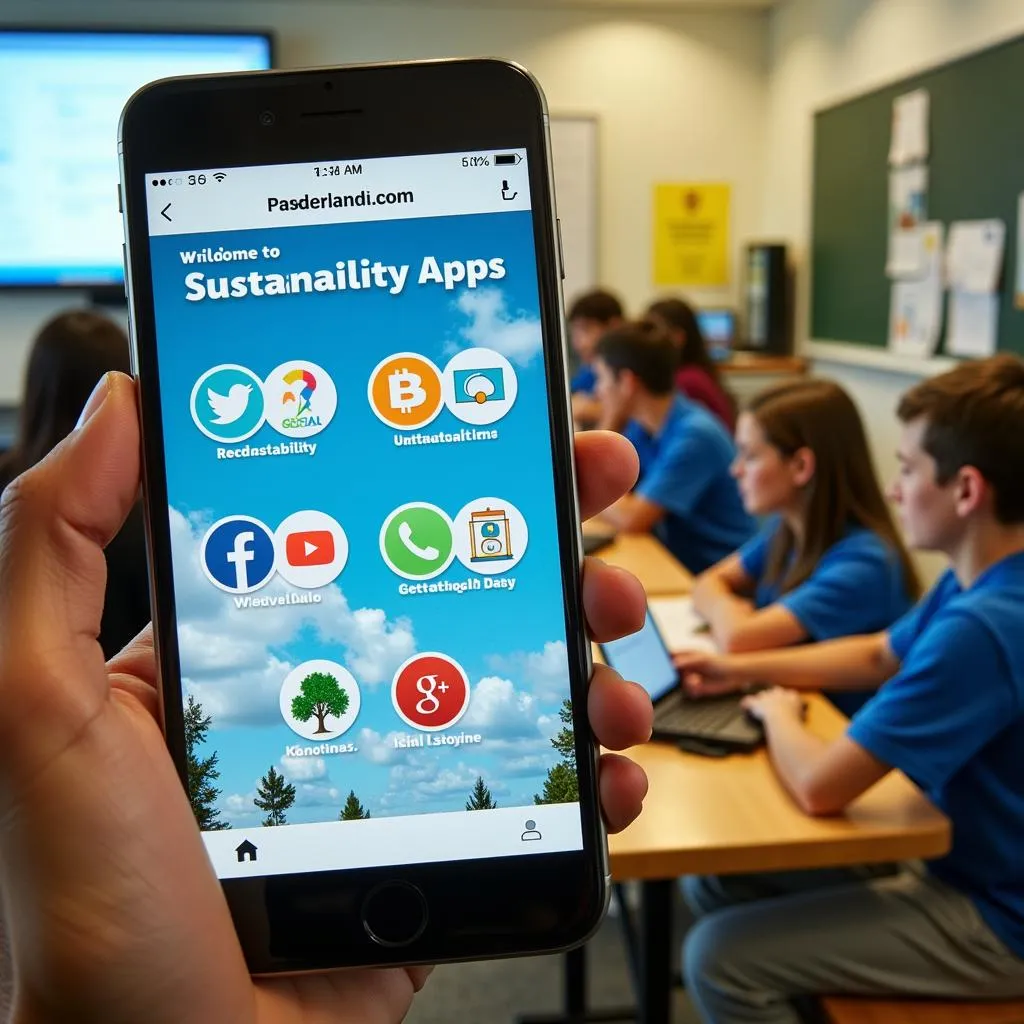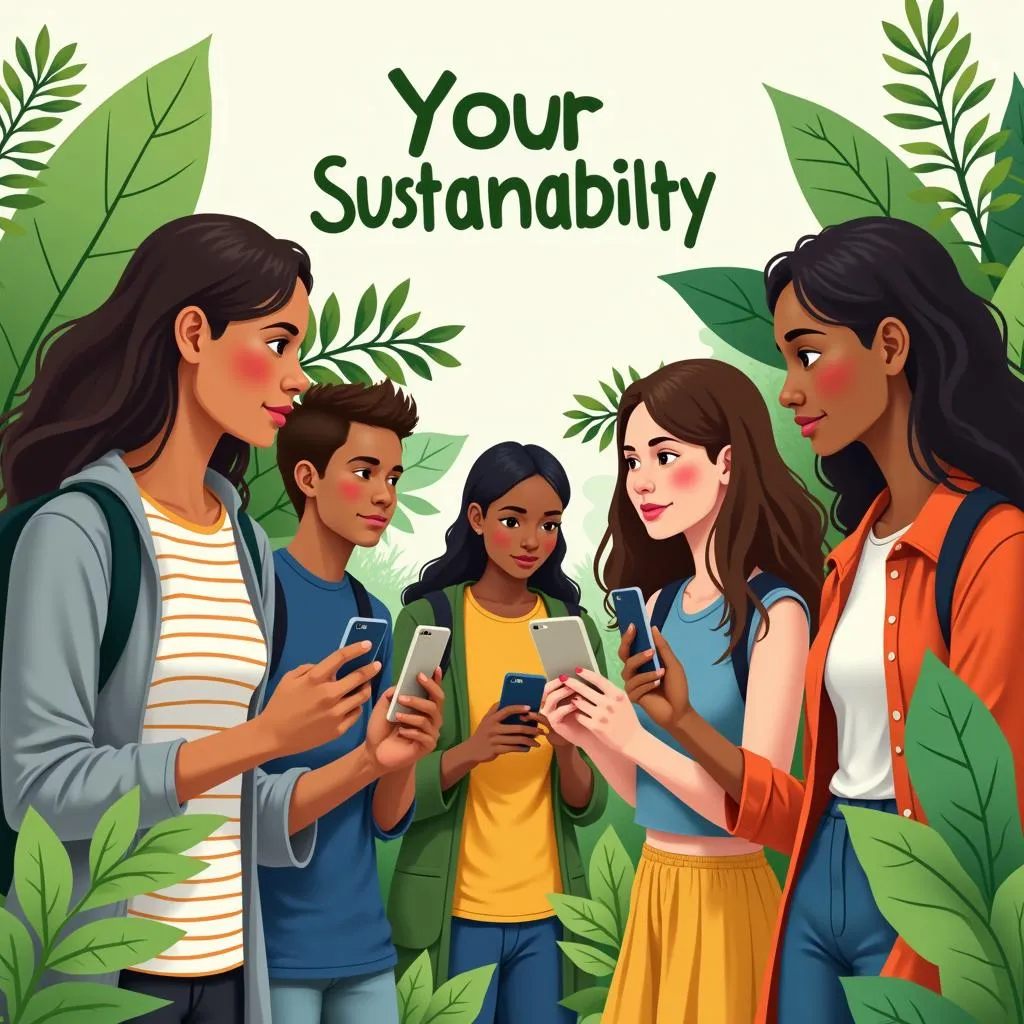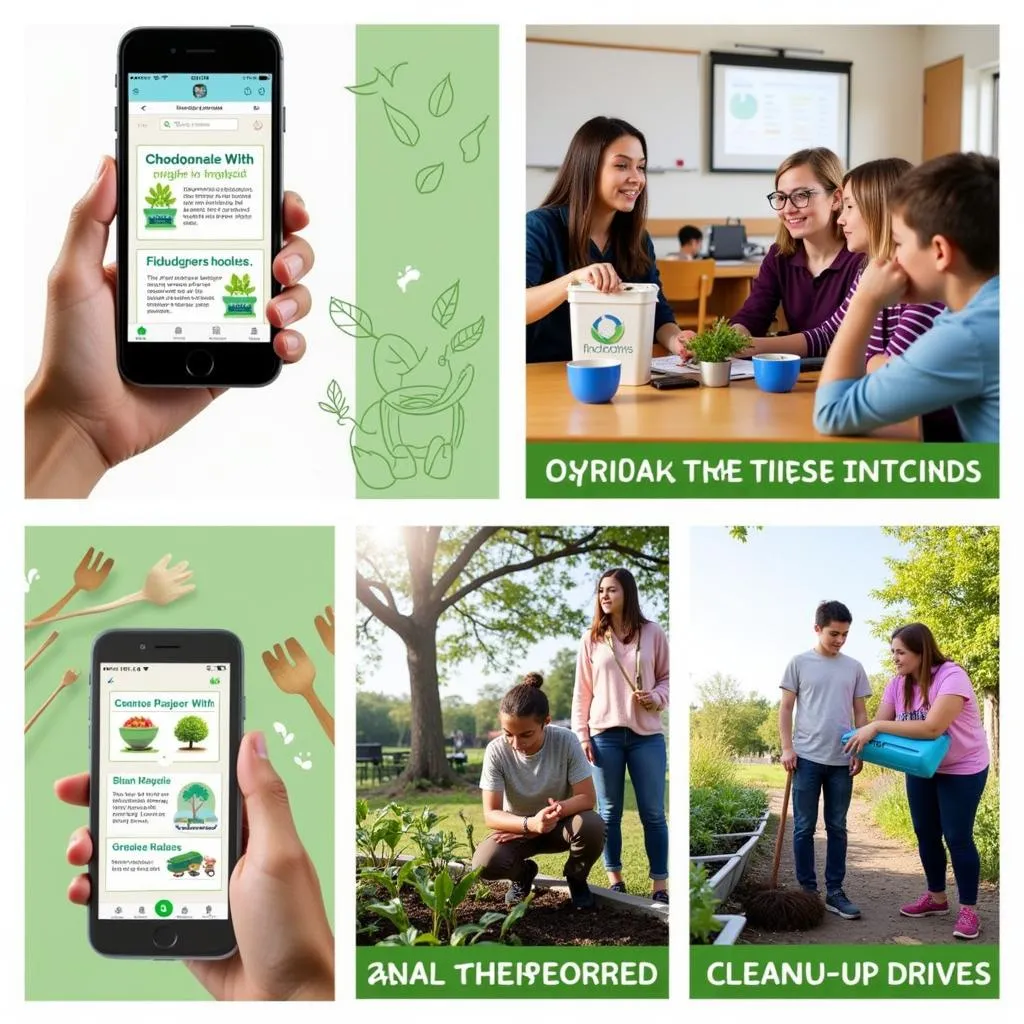The topic of social media’s influence on promoting sustainable lifestyles has gained significant traction in recent IELTS Writing Task 2 examinations. Based on an analysis of past exam trends and the growing importance of sustainability in global discourse, it’s highly likely that this theme will continue to appear frequently in future tests. Let’s explore a relevant question that has been featured in recent IELTS exams:
Some people think that social media is an effective way to promote sustainable lifestyles, while others believe that traditional forms of education are more effective. Discuss both views and give your own opinion.
Analysis of the Question
This question requires candidates to:
- Discuss the effectiveness of social media in promoting sustainable lifestyles
- Compare it with traditional forms of education
- Provide a personal opinion on which method is more effective
Let’s examine three sample essays of varying band scores to illustrate different approaches to this topic.
Sample Essay 1 (Band 8-9)
In the digital age, the debate between social media’s effectiveness and traditional education methods in promoting sustainable lifestyles has become increasingly relevant. While both approaches have their merits, I believe that a combination of these methods is most effective in fostering environmentally conscious behaviors.
Social media platforms undeniably possess a unique power to disseminate information rapidly and engage vast audiences. These digital channels can effectively showcase sustainable practices, inspire eco-friendly initiatives, and create virtual communities dedicated to environmental causes. For instance, viral challenges promoting plastic-free living or energy conservation can reach millions within hours, potentially influencing behavior on a global scale. Moreover, the interactive nature of social media allows for immediate feedback, discussion, and sharing of personal experiences, which can reinforce sustainable habits more effectively than passive learning.
On the other hand, traditional education methods offer a structured, in-depth approach to understanding sustainability. Classroom settings, workshops, and formal training programs provide comprehensive knowledge about environmental issues, scientific facts, and long-term implications of our actions. This thorough understanding is crucial for developing critical thinking skills and fostering a deep-rooted commitment to sustainable living. Additionally, face-to-face interactions in traditional educational settings allow for hands-on experiences, such as participating in local clean-up drives or sustainable farming projects, which can have a profound impact on individuals’ perspectives and behaviors.
In my opinion, the most effective approach to promoting sustainable lifestyles lies in harmonizing these two methods. Social media can serve as a powerful tool for raising awareness, creating initial interest, and maintaining ongoing engagement with sustainability issues. Meanwhile, traditional education can provide the foundational knowledge and practical skills necessary for implementing sustainable practices effectively. By leveraging the strengths of both approaches, we can create a more informed, motivated, and action-oriented population committed to environmental stewardship.
Promoting sustainable lifestyles through education is indeed crucial, but when combined with the reach and engagement of social media, its impact can be significantly amplified. For example, educational institutions could use social media platforms to extend their reach beyond the classroom, sharing resources, organizing virtual events, and fostering ongoing discussions about sustainability.
In conclusion, while social media and traditional education each have their unique strengths in promoting sustainable lifestyles, their combined use offers the most promising path forward. By integrating the immediacy and connectivity of social media with the depth and structure of traditional education, we can create a more holistic and effective approach to cultivating sustainable behaviors in society.
(Word count: 401)
 Social media and traditional education promoting sustainability
Social media and traditional education promoting sustainability
Essay Analysis (Band 8-9)
This essay demonstrates several key features that contribute to its high band score:
-
Task Response: The essay fully addresses all parts of the task, discussing both views and providing a clear personal opinion.
-
Coherence and Cohesion: The essay is well-organized with clear paragraphing and effective use of linking devices.
-
Lexical Resource: A wide range of vocabulary is used accurately and appropriately, including topic-specific terms.
-
Grammatical Range and Accuracy: The essay showcases a variety of complex structures with minimal errors.
-
Development of Ideas: Each point is well-developed with relevant examples and explanations.
Sample Essay 2 (Band 6-7)
The question of whether social media or traditional education is more effective in promoting sustainable lifestyles is an important one. Both methods have their advantages and disadvantages, and I think both can be useful in different ways.
Social media has become a big part of our lives and can reach many people quickly. It’s good for sharing information about sustainable living and showing people easy ways to be more eco-friendly. For example, Instagram influencers can post about using reusable bags or water bottles, and their followers might copy them. Also, Facebook groups about sustainability can help people share tips and encourage each other. However, social media information can sometimes be shallow or incorrect, which is a problem.
On the other hand, traditional education in schools and universities can provide deeper knowledge about sustainability. Teachers can explain complex environmental issues and help students understand the science behind climate change. This kind of education can create a strong foundation for sustainable thinking. Students can also do practical projects like starting recycling programs or growing vegetables, which gives them hands-on experience. But traditional education might not reach as many people as social media, especially adults who are not in school anymore.
In my opinion, both social media and traditional education are important for promoting sustainable lifestyles. I think we need to use both methods together to get the best results. Social media can spread ideas quickly and keep people interested, while traditional education can provide the detailed knowledge needed to make real changes.
Social media for environmental causes can be very powerful, but it works best when combined with solid education. Schools could use social media to share what students are learning about sustainability, reaching parents and the community. This way, the benefits of both approaches can be combined.
To conclude, while social media and traditional education have different strengths in promoting sustainable lifestyles, using both together is probably the most effective approach. This combination can help create a society that is both aware of environmental issues and equipped with the knowledge to address them.
(Word count: 342)
 Social media raising awareness for sustainable lifestyles
Social media raising awareness for sustainable lifestyles
Essay Analysis (Band 6-7)
This essay demonstrates features that place it in the Band 6-7 range:
-
Task Response: The essay addresses all parts of the task, but the ideas could be more fully developed.
-
Coherence and Cohesion: The essay is generally well-organized, but some paragraphs could be more tightly structured.
-
Lexical Resource: There is a good range of vocabulary, but more sophisticated language could be used.
-
Grammatical Range and Accuracy: The essay uses a mix of simple and complex sentences with some errors that do not impede communication.
-
Development of Ideas: Ideas are relevant but could be supported with more specific examples or deeper analysis.
Sample Essay 3 (Band 5-6)
Nowadays, people talk about how to make people live in a more sustainable way. Some think social media is good for this, but others say traditional education is better. I will discuss both ideas and give my opinion.
Social media is very popular now. Many people use Facebook, Instagram, and Twitter every day. These platforms can show people how to live sustainably. For example, they can see videos about recycling or posts about saving energy. It’s easy to share this information with friends. But sometimes, information on social media is not true or too simple.
Traditional education in schools is another way to teach about sustainability. Teachers can explain things deeply and students can learn a lot. They can do projects and experiments about the environment. This helps them understand better. However, not everyone goes to school, so not everyone can learn this way.
I think both social media and traditional education are important. Social media can reach many people quickly, but education in schools can teach more details. Maybe we should use both to help people understand how to live sustainably.
How to promote environmental awareness through social media is important, but schools should also teach about it. If we use both ways, more people might start living in a way that’s better for the environment.
In conclusion, social media and traditional education both have good points for teaching about sustainable lifestyles. I believe using both together is the best way to help people learn and change their habits.
(Word count: 259)
 Different methods of educating about sustainable lifestyles
Different methods of educating about sustainable lifestyles
Essay Analysis (Band 5-6)
This essay demonstrates features that place it in the Band 5-6 range:
-
Task Response: The essay addresses the task, but the treatment of the topic is somewhat superficial.
-
Coherence and Cohesion: There is a clear overall structure, but paragraphing could be improved, and the use of cohesive devices is limited.
-
Lexical Resource: The vocabulary is adequate for the task but lacks precision and sophistication.
-
Grammatical Range and Accuracy: Simple structures are used accurately, but there is limited use of complex sentences.
-
Development of Ideas: Ideas are present but lack full development and supporting details.
Key Vocabulary
-
Sustainable (adjective) /səˈsteɪnəbl/: Able to be maintained at a certain rate or level.
-
Disseminate (verb) /dɪˈsemɪneɪt/: Spread (information) widely.
-
Eco-friendly (adjective) /ˌiːkəʊ ˈfrendli/: Not harmful to the environment.
-
Initiative (noun) /ɪˈnɪʃətɪv/: An act or strategy intended to resolve a difficulty or improve a situation.
-
Reinforce (verb) /ˌriːɪnˈfɔːs/: Strengthen or support, typically with additional personnel or material.
-
Stewardship (noun) /ˈstjuːədʃɪp/: The job of supervising or taking care of something, such as an organization or property.
-
Amplify (verb) /ˈæmplɪfaɪ/: Increase the volume of (sound); make louder or more intense.
-
Holistic (adjective) /həˈlɪstɪk/: Characterized by the belief that the parts of something are intimately interconnected and explicable only by reference to the whole.
-
Cultivate (verb) /ˈkʌltɪveɪt/: Try to acquire or develop (a quality, sentiment, or skill).
-
Commitment (noun) /kəˈmɪtmənt/: The state or quality of being dedicated to a cause, activity, etc.
In conclusion, this topic on the role of social media in promoting sustainable lifestyles is likely to remain relevant in future IELTS Writing Task 2 exams. Candidates should be prepared to discuss various aspects of social media’s influence, traditional education methods, and their comparative effectiveness in fostering sustainable behaviors.
To practice, try writing your own essay on this topic or related ones, such as:
- The impact of social media influencers on promoting eco-friendly products
- The role of technology in creating awareness about climate change
- Comparing online and offline campaigns for environmental conservation
Feel free to share your practice essays in the comments section for feedback and discussion. This active engagement will help you improve your writing skills and prepare effectively for the IELTS Writing Task 2.


